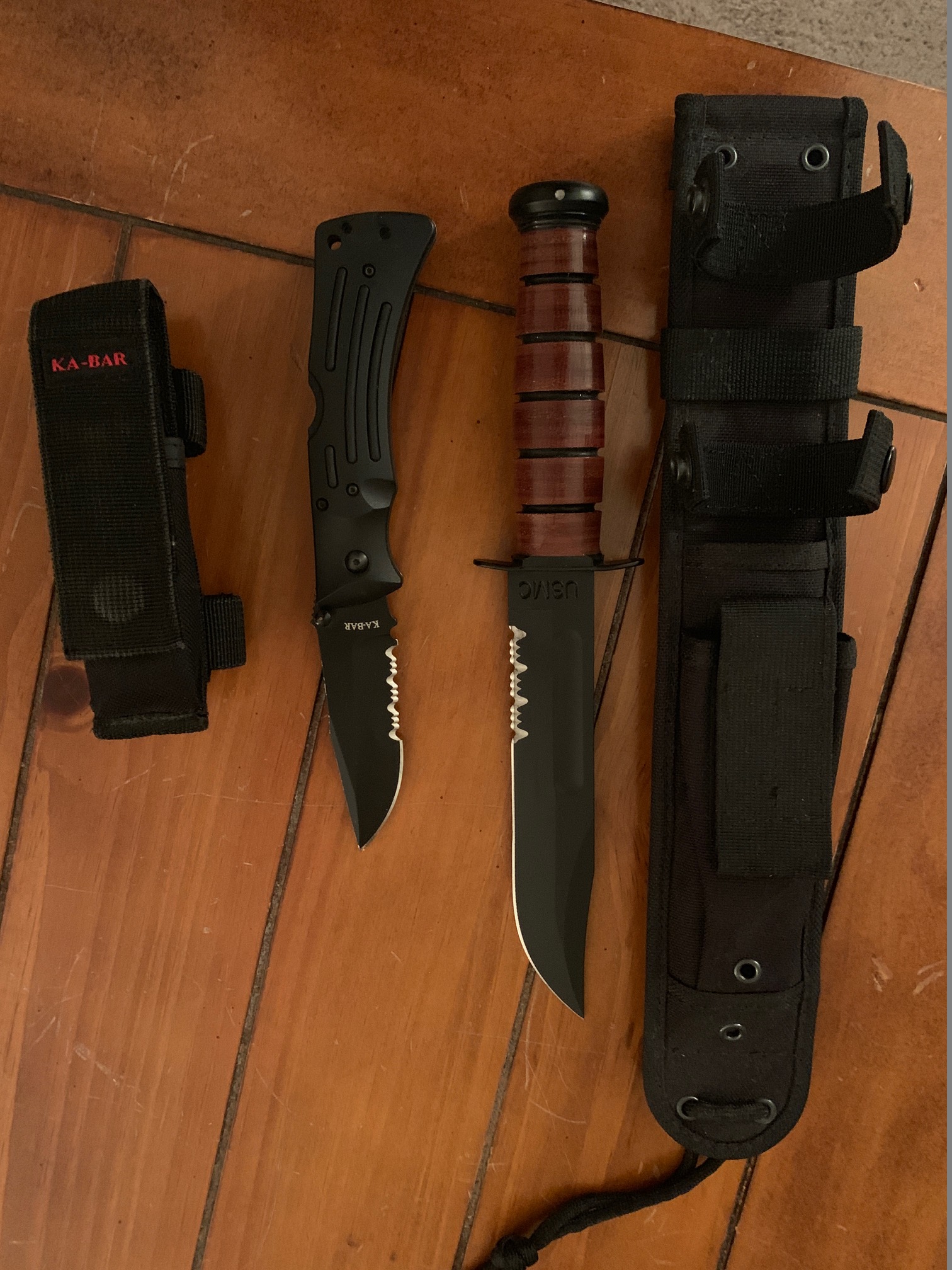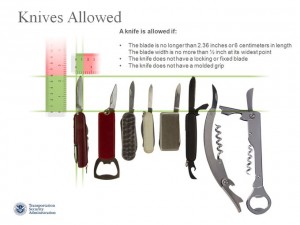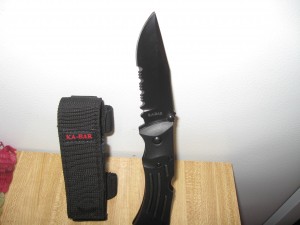Ninth Circuit Overturns Hawaii Knife Ban
BY Herschel SmithA conservative panel of federal judges ruled Monday that a 30-year ban on butterfly knives in Hawaii is unconstitutional under the U.S. Supreme Court’s new “history and tradition” standard for reviewing the legitimacy of gun and other weapons laws nationwide.
“Hawaii has not demonstrated that its ban on butterfly knives is consistent with this Nation’s historical tradition of regulating arms,” Judge Carlos Bea wrote for the unanimous three-judge panel of the U.S. 9th Circuit Court of Appeals.
The ruling, which may be appealed, has implications beyond Hawaii, including in California and other states that also ban or severely restrict butterfly knives, which have been targeted by lawmakers because they can be easily concealed and flipped open.
California bans “switchblades” — which include butterfly knives — when they have blades 2 or more inches in length. A separate lawsuit challenging that ban is pending.
The decision reflects the growing reach of the Supreme Court’s pro-gun rights decision last year in New York State Rifle & Pistol Assn. vs. Bruen, in which the nation’s highest court ruled that restrictions on people’s 2nd Amendment right to bear arms are constitutional only if they are deeply rooted in the nation’s history and tradition or analogous to some historical rule.
Since then, trial and appellate judges have found themselves sifting through century-old state statutes to determine the legality of hundreds of modern weapons restrictions in states all across the country — including on knives and billy clubs, assault weapons and ammunition magazines, and on the possession of guns by certain classes of people, including adults under 21 and people who are subject to restraining orders.
Bea wrote that Hawaii’s 1993 ban on butterfly knives did not meet the criteria because nothing like it existed around the historical benchmarks chosen by the Supreme Court as relevant for such analyses: 1791, when the 2nd Amendment was passed, or 1868, when the 14th Amendment was passed. The latter amendment prohibits states from depriving people of property without due process of law.
Although the Bruen decision specifically addressed firearm regulations, Bea wrote that was only because the case in Bruen was about gun regulations in New York. The same “framework” applies to knives, which are also “arms” under the 2nd Amendment, he said.
[ … ]
Adam Winkler, a UCLA law professor who focuses on 2nd Amendment law, said the 9th Circuit’s decision “is emblematic of what’s happening across the nation right now.
“Courts are striking down regulation of arms left and right.”
Winkler said the Supreme Court “has put states in the impossible position of showing that any law that regulates weapons for public safety [has] clear analogues in the 1700s and 1800s,” which he added “just leaves courts to draw analogies to laws that were designed for a different society.”
“It really makes no sense,” he said.
[ … ]
Hawaii put forward several such laws, dating back to 1837, including laws that banned or regulated bigger blades such as Bowie knives and “Arkansas Toothpicks,” daggers, brass knuckles, canes concealing swords and knotted ropes with metal weights at the end called “slung-shots.”
An 1837 law in Georgia — which the court called Hawaii’s “best historical analogue” — said no one shall “keep, or have about or on their person or elsewhere … Bowie, or any other kind of knives.”
Bea wrote that the Georgia law didn’t clearly include “pocketknives” — which in his decision would include butterfly knives — so it wasn’t necessarily relevant. And anyway, he wrote, “one solitary statute is not enough to demonstrate a tradition of an arms regulation.”
[ … ]
“The court has to provide more clarity and direction for the lower courts,” Winkler said, “because the Bruen test has proven absolutely unworkable and unpredictable.”
It makes no sense to fisk this decision completely because it’s the right decision. However, I do have some thoughts on it.
First, men should be able to carry swords if they choose to. Silly debates on the mechanical operation of knives makes these judges look like school children, and besides, none of them ever used a knife anyway unless it’s an electric powered knife for cutting turkey because their wife told them to. Their wives could probably have done a better job of cutting the turkey.
Seriously, most of these judges are so effete that they wouldn’t know how to use fire starter, tie a bowline or taut line hitch, build a campfire, or be able to open a box with a knife without cutting themselves. They certainly wouldn’t know how to operate a 1911, and yet they’re adjudicating laws for the rest of us.
Next, notice the silly Adam Winkler and his hand wringing over this sort of thing. He says, “impossible position of showing that any law that regulates weapons for public safety [has] clear analogues in the 1700s and 1800s,” [which he added] “just leaves courts to draw analogies to laws that were designed for a different society. It really makes no sense.”
It makes perfect sense, and it’s clear enough to you and me. Winkler just doesn’t like it. He adds to our understanding of his frustration by emoting “the Bruen test has proven absolutely unworkable and unpredictable!”
The test is completely workable. The test is to find analogues from the time of the signing of the constitution, or at the latest the lives of the founders (while they were still here on earth). Can’t find an analogue? Too bad. You fail the test. There is no reason to search any more.
There were no analogues on the carry of knives from the time of the founding. Even as children the founders carried long guns to school with them to be able to hunt on the way to and from school to fill the dinner table. And that stupid “analogue” on Bowie knives from 1837 from Georgia is no analogue at all. It’s too late.
All this searching they’re doing is to try to force fit later laws and regulations into the framework of the Bruen test. There was also no law or regulation of firearms serialization at the time of the founding either. They can pull their hair out as far as I’m concerned. In fact, the more time they waste on trying to convince the court that they’ve actually found something when the law is too late to meet the Bruen standard is time they don’t have to spend on wrecking the lives of other people.
The only downside for us is that this all slows the process down. It would be better if they just gave up and understood that they can’t meet the Bruen test. In absence of that, I’ll take a waste of their time.
Finally, why do writers go to silly men like Winkler to assess the facts of these cases, when they’ve got real scholars like David Kopel, Dave Hardy, Stephen Halbrook, Mark Smith and so many others?
Winkler doesn’t like the Bruen test. That’s fine with me inasmuch as I don’t care what Winkler thinks. That’s a much different thing than saying that it’s unworkable and unpredictable. The test is entirely workable and quite predictable. Winkler gets an ‘F’ from The Captain’s Journal on class participation today.







